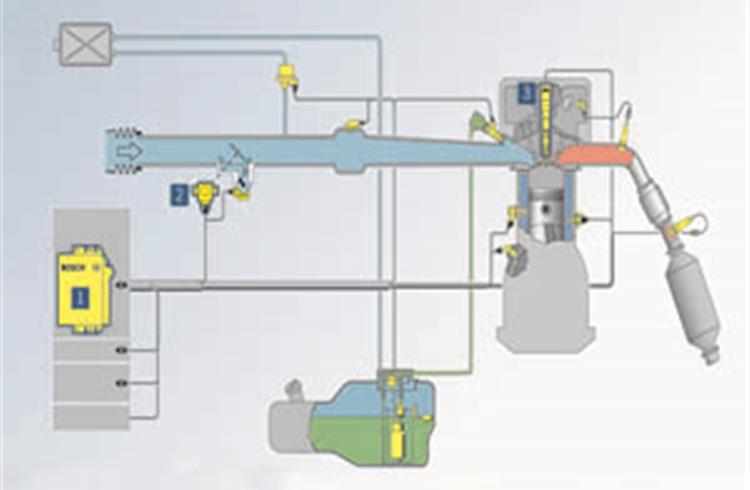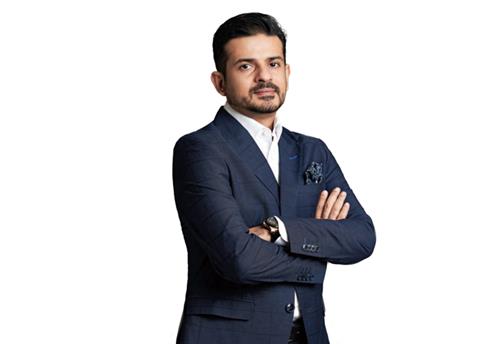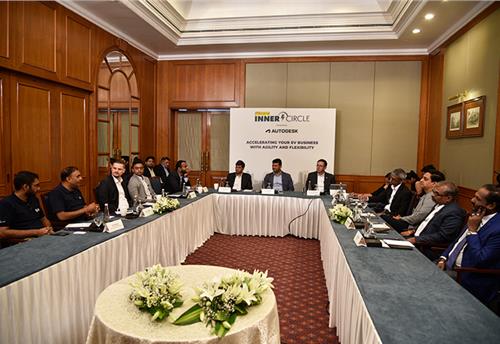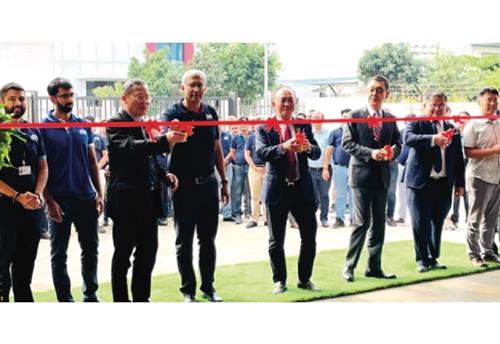Bosch immobilisers, DC converters soon
At Bosch’s Naganathapura plant off the Bangalore-Hosur highway, a select group of automotive electronics engineers work 24/7 on products that will change the face of India’s automotive sector.
These are products made to handle engine management functions – engine control units – that determine the fuel efficiency of a vehicle. The plant can claim as one of its high points, the supply of engine management systems (EMS) to the Tata Nano, the world’s most affordable car. For Bosch, this facility is a hub for the production of auto electronic products that can go beyond ECUs.
The plant’s current capacity of 650,000 units is being doubled, says Dr Hildenbrand Markus, vice-president and regional president India, for auto electronics, who showed this writer around the facility.
Dr Markus told Autocar Professional, “Ideally, we would like to look at several electronics applications in cars, that cost in the region of Rs 6,000. It is doable and is a must to survive in this business.”
As far as Bosch is concerned, the universe of auto electronics can potentially comprise engine ECUs, DC converters, electronic battery sensors, park pilots, RF receiver modules and body computers to mention but a few.
One cannot say whether these products will be made at this plant in the near future but clearly Bosch has set its sights high. Dr Markus is quick to add that while developing high-end products is a given at Bosch, the challenge is to develop low-cost applications. That’s where India will play a key role. The Naganathapura plant, for example, has state-of-the-art equipment, a lot of it imported in order to ensure that products are of the highest quality. Special flooring ensures that there will be no disruption of production on account electro-static charges.
The plant also has a reliability laboratory. “We do a lot of testing here and this lab facilitates something as fine as cutting up an ECU to investigate the details. In 2011, the immediate priorities for Dr Markus and his team, indeed, for Bosch, is the supply of immobilisers and DC coverters to two key volume players. And while Dr Markus will not reveal the prices, he is clear that this has been delivered to tight benchmarking as far as quality and marketing pricing goes.
Into this third year of operations, Bosch’s automotive electronics (AE) arm is a 100 percent auto electronics vertical fully focused on the auto sector which is unlike the model that Bosch has overseas where the AE sector contributes to the consumer technology and building technology sectors as well.
The company’s rationale of setting up operations in Bangalore is motivated by the fact that the engineering talent available for the company. And while the product range gradually expands, Bosch is also looking at body electronics. This category typically covers a broad variety of applications inside the passenger compartment, including comfort (HVAC, window lift), safety (advanced lighting, rain-light sensors), and vehicle networking (body control module (BCM), gateway).
With many diverse subsystems involved, body electronics components connect to each other and other systems using several vehicle protocols including CAN, LIN, MOST, FlexRay, and even Ethernet. In addition to other functions, a BCM can address the transition between protocols and perform as a central gateway, where fast, reliable communication between vehicle subsystems is essential.
With regard to the two new products being launched this year, Dr Markus elaborates on their importance for the auto sector. The immobiliser is a product that targets anti-theft and is, in that sense, a safety-related one. Bosch will deliver this product separately from engine ECUs unlike overseas where it is delivered as a unit. Speaking about the dual converter, Dr Markus makes the point that such a product is a very likely trend in the auto electronics segment going forward. The importance is derived from the fact that it supports the energy management when engine stops or “goes off”.
It is the key to stop-start control. To ensure that the radio, music and GPS not stop as they take energy from the system, this is a useful product in today’s cars. The singular challenge emerges from the fact that in a small car, the power in the batteries is not adequate as more and more electronics is put into a vehicle. Therefore, an energy-efficient systems is a key requirement. The cost of such a product varies from the customer and vehicle concerned and the likely price for a good product that is economically prices is ideally below the euro 30 (around Rs 1,800) mark. As a result of the over-arching importance that Bosch attaches to quality, the company closely tracks a product right from the assembly line onwards.
Bosch provides the required training at the assembly stage itself in order to ensure that employees attach the right connectors to the products. This prevents electrical stress that can effectively destroy an ECU. The potential damage to ECUs is sought to be minimised at all times. As a part of its policy, Bosch does not replace defective ECUs that its vendors return if they are found not functional. “We have to ascertain why a product, in this case, the ECU, did not work,” reiterates Dr Markus. .
One of the highlights of Bosch’s work at the Naganathapur plant concerns the EMS that it supplied to the Tata Nano. With the Nano headed to export markets in Europe, Dr Markus is of the opinion that it has interesting possibilities for EU. The Nano project for Bosch represents an interesting innovation that can potentially migrate from a small low-cost car to a high-end vehicle.
In 2010, Bosch focused on extending the Bosch Production System to its business partners in order to improve the entire value chain. Called Project Transform, it has been launched with select Bosch suppliers and aims to improve operational efficiencies through training and implementing LEAN concepts.
Bosch recorded sales of Rs 6,630 crore in 2010, 39 percent over 2009 sales of Rs 4,749 crore in 2009. The share of automotive products in the company’s business went up from 89 percent to 91 percent. In the auto segment, 86 percent were accounted for by domestic sales. As India's car population and fuel prices go up, companies like Bosch are ever mindful that motorists want better value. Bosch therefore is keen to leverage India's capabilities in this regard. As Dr Markus says, "Cost is the only innovation."
RELATED ARTICLES
BRANDED CONTENT: Serving India’s EV ecosystem
Shimnit Integrated Solutions Pvt. Ltd. (SISPL), a subsidiary of Mumbai's leading high-security number plate supplier, Sh...
Driving EV business with agility and flexibility
CEOs from the EV startup ecosystem met in Bengaluru and Pune to discuss the challenges and business opportunities.
BRANDED CONTENT: SM Auto and Gotech energy inaugurate their first battery pack assembly plant in Pune
Pune-based SM Auto Engineering (SMA), a leading automotive component system manufacturer and its partner Gotech Energy (...





 By Autocar Pro News Desk
By Autocar Pro News Desk
 01 Jun 2011
01 Jun 2011
 4134 Views
4134 Views









